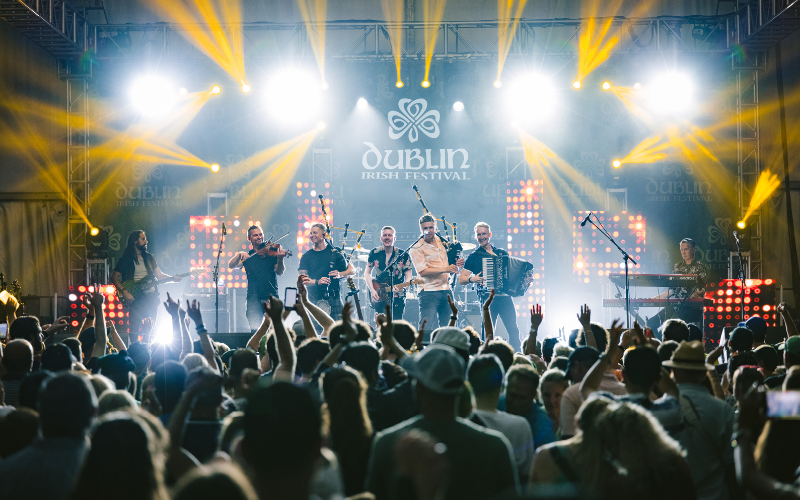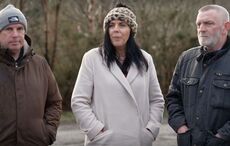"The Siege at Jadotville" bears the hallmarks of many books we've read over the past 15 years, written from the perspective of young soldiers fighting a confusing war in a strange land, outnumbered by resentful natives and facing certain death against overwhelming hostile forces.
Political and military indecision elsewhere leave a small unit dependent completely on themselves and their commitment to each other. Fallujah, Anbar Province....a generation ago it might have been Khe Sanh or Dien Bien Phu. What makes Declan Power's story so intriguing is that the young men here are from the West of Ireland, and most of them had not traveled past Dublin before finding themselves in Central Africa in 1961.
Military buffs will enjoy the details Power provides on the miscalculations that culminated in a ferocious four-day firefight and the ultimate surrender and captivity of A Company. Perhaps a more interesting place to begin is in the country these soldiers had come from. Ireland in the late fifties was a generation into being an independent country and already off to a rough start.
The country's politics remained dominated by its troubled relationship with Britain, partition and the Irish Civil War. Ireland's only exports going anywhere other than to Britain were its missionaries and emigrants. As continental Europe was coming together through the EEC, Ireland's sense of isolation was made worse by a lingering hostility from the WWII allies due to Ireland's strident neutrality, itself a stance more defined by Ireland's antagonistic relationship with Britain than by any broader philosophy.
Read more: Jamie Dornan’s “Siege of Jadotville” to be released globally on Netflix (VIDEOS)
This was the backdrop to the United Nations request to the Irish Government in 1958 to provide troops for International peacekeeping missions; the young multinational organization and the young neutral country were both looking to establish themselves in a time of the bipolar Cold War. For the Irish, the request was a godsend.
The political leaders and civil service mandarins would get international relevance, overseas travel and photo ops. The Army's Top Brass saw the promise of an infusion of recruits, new equipment and funding for a poorly resourced organization. For the soldiers themselves, there was the exotic prospect of seeing some of the world, and getting away from the tedium of the IRA's Border Campaign.
After almost a century of ruthlessly exploiting the Congo's vast mineral wealth, Belgium had reluctantly granted independence to the country, which is the size of Western Europe, in June, 1960. The colonial end-game played out rapidly, with virtually no preparation for what would happen next. The third biggest African country descended into anarchy, torn asunder by tribal rivalries, continuous meddling by the Belgians and the simmering resentment of the white settlers who were determined to stay on.
Belgium, determined not to relinquish its commercial interests in the Congo, had left 10,000 troops in the country, greatly limiting the autonomy of the new government in dealing with the chaos and the attempted secession of its richest province, Katanga.
Within weeks of independence, the new President, Patrick Lumumba, approached the UN for military assistance. Spooked by the fact that Lumumba had also sought help from the Russians, the UN moved rapidly, and a multinational force was on the ground within days. It is remarkable to read that the first 250 Irish soldiers left Dublin for the Congo on US Air Force planes just 12 days after the government had agreed to the UN request.
Getting there was the easy part. For the next year, the UN forces struggled to adapt to a lethal and ever-shifting environment. Still new to peacekeeping, and struggling to balance the diverging objectives of its Security Council members, the UN did not have its finest hour in The Congo. Consequently, its soldiers were tasked with a mission that may have looked fine on paper in New York, but often had little relevance to the facts on the Congolese ground. Linguistic and cultural differences within the peacekeeping force only added to the communications challenges of operating in central Africa.
Four months after arriving in the Congo, an 11-man Irish patrol was ambushed and 9 men were hacked to death by Baluba tribesmen at Niemba in the breakaway province of Katanga. The brutality of the killings sent shock-waves throughout Ireland. The following summer, the 155 men of A Company were deployed to the Katanga town of Jadotville, ostensibly to protect the community of Belgian settlers there.
In reality, the settlers were not only strongly anti-UN but were actively conspiring against their "protectors" with a force of up to 5,000 Katangese militia, led by the dogs of war – Belgian, Rhodesian and French mercenaries – veterans of WWII and Indochina. When the attack came on September 13, the men of A Company were completely isolated from other UN forces, and facing overwhelming odds.
Throughout the book, Power shows an ex-soldier's empathy for the Irish troops of A Company. He makes a compelling argument that they behaved bravely and honorably throughout a brutal ordeal, and were badly let down at many critical moments by those further up the UN political and military chain. Attacked by a vastly superior force led by hardened war veterans, A Company performed remarkably well in combat.
In Power's telling, a major factor in this was the leadership displayed by young officers, commissioned and noncommissioned alike. It is tempting to play armchair general and second guess the decisions made by Commandant Quinlan, the Commanding Officer of A Company, and Power recounts that many have done just that over the years.
Perhaps the author has led the reader in this, but Quinlan emerges from this telling as a true hero. Despite having his warnings and requests repeatedly ignored by senior officers, Quinlan does everything possible to fulfill an impossible mission. Then he brings his men home alive.
Beginning in Lebanon in 1958, Ireland has had troops deployed with the UN ever since, and the many thousands of Irish soldiers have earned a reputation for their toughness and professionalism. Eighy-six of them have died on UN duty, 26 in the Congo alone.
Twenty-six years after Jadotville, I served as a junior officer on a UN mission in Lebanon, by which time both the UN and the Irish Army were far more adept at peacekeeping. Yet even then the realpolitik at UNHQ could result in changes to our operational orders that made little sense to those of us on the ground.
Power's book is a reminder of the timeless nature of soldiering, and a maxim that is as relevant in Afghanistan today as it was in Jadotville in 1961. When the chips are down, soldiers do the brave things they do, not because of their belief in "the mission", but because of their trust in their leaders and their commitment to those beside them.
* Adrian Jones, a native of Roscommon, lives in New Jersey. He served in the Irish Army from 1981-89.




Comments